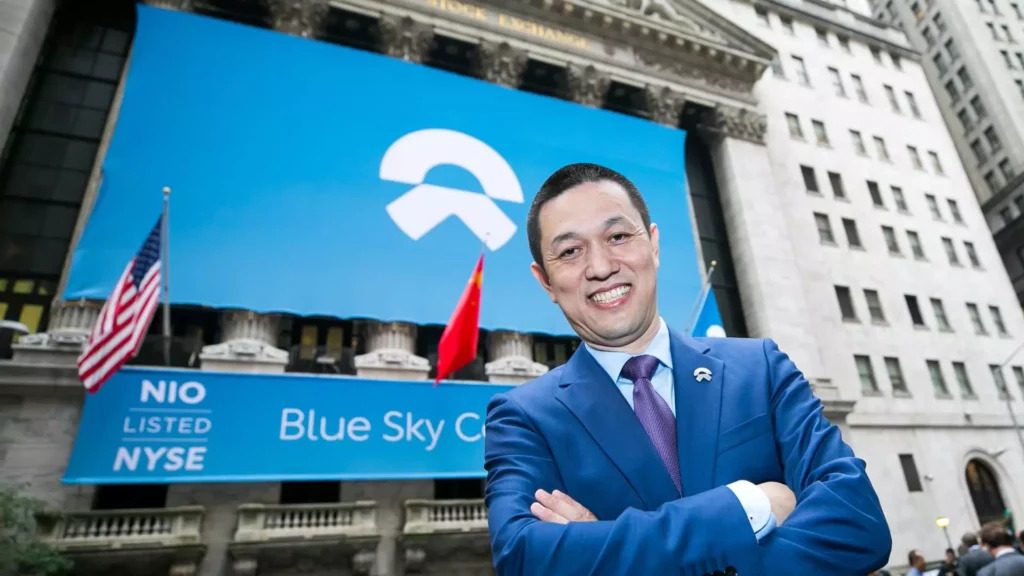![]()
Chinese electric car companies Nio and Xpeng are making a strategic shift towards the lower-priced segment of the market by introducing newly branded cars this year. In a recent interview, Nio’s CEO William Li revealed that the company’s first mass-market car will be an SUV priced below Tesla’s Model Y, which starts at 249,900 yuan in China. This move comes after Nio, like many other early entrants to the Chinese electric car market, initially targeted the premium segment with vehicles costing around $50,000 or more.
The decision by Nio and Xpeng to launch mass-market brands reflects the increasing competition in China’s new energy car market, which includes battery-only and hybrid-powered vehicles. These cars now represent over 40% of new passenger car sales in the country. The companies’ new vehicles will put them in direct competition with established players such as local rival BYD and German automaker Volkswagen.
Nio is gearing up for a mid-May launch of its new brand, named Onvo or “Le Dao” in Chinese, catering to families as the target consumer segment. On the other hand, Xpeng, which operates in a slightly lower price range than Nio, plans to introduce its new sub-brand, Mona, in the coming months. These new cars are expected to be priced below 150,000 yuan, positioning Xpeng’s offering in a more affordable range than Nio’s target market.
Both Nio and Xpeng are emphasizing the importance of technology in their new mass-market brands. Xpeng believes that with scale, advanced technology, and cost control, they can bring differentiated technology to a broader consumer base. The company’s driver-assist software has been a key selling point in China, especially considering Tesla’s full self-drive software is not yet available in the country. By focusing on differentiated tech for the mass market, Xpeng aims to set itself apart from competitors in the premium segment.
Despite undercutting Tesla’s Model Y in terms of pricing, Nio mentioned that their new brand’s first car will be priced around $30,000, positioning it slightly higher than BYD’s offerings. BYD, a major player in the Chinese electric car market, has seen success in the lower end of the mass market. The company has expanded its product range from below 100,000 yuan to over 1 million yuan, catering to various consumer segments. In the second quarter of this year, BYD is set to launch a new hybrid-powered car in the 120,000 to 150,000 yuan price range.
The shift towards lower-priced electric cars in China signifies a broader trend in the market, driven by increased competition, technological advancements, and changing consumer preferences. Companies like Nio and Xpeng are adapting their strategies to capture a larger market share and cater to a more price-sensitive audience. As the industry continues to evolve, we can expect to see more innovation, differentiation, and fierce competition among electric car manufacturers in China.

Leave a Reply